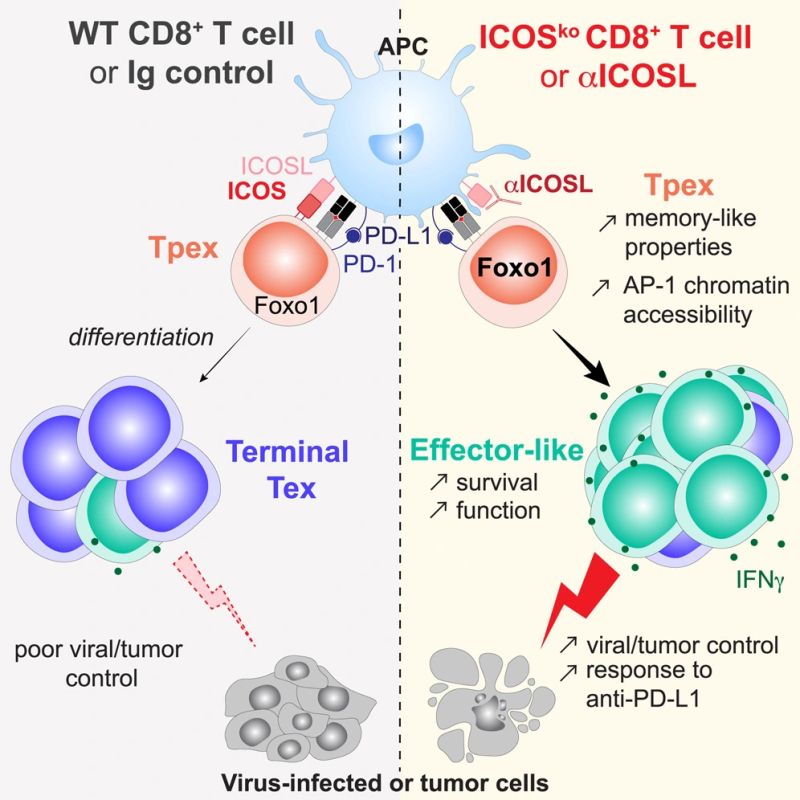Himanshu Mishra, Microbiologist At Zydus Lifescience pvt Ltd Ahemdabad, shared a post on LinkedIn:
“The costimulatory molecule ICOS limits memory-like properties and function of exhausted PD-1+CD8+ T cells:
During persistent antigen stimulation, CD8+ T cell responses are maintained by progenitor exhausted CD8+ T (Tpex) cells. Tpex cells respond to blockade of the inhibitory receptor programmed cell death-1 (PD-1), and regulation of their differentiation is critical for immunotherapies.
Tpex cells highly express inducible costimulator (ICOS), but how ICOS modulates PD-1+CD8+ T cells is not clear. During chronic infection, intrinsic ICOS deficiency increased number and quality of virus-specific CD8+ T cells. Loss of ICOS potentiated activity of the transcription factor forkhead box O1 (FoxO1) and memory-like features of Tpex cells. ICOS-deficient Tpex cells were poised to generate effecor-like cells with improved survival and cytokine production.
ICOS-ligand (ICOSL) blockade expanded effector-like PD-1+CD8+ T cells, reduced viral load, and improved response to PD-1 blockade. Similarly, in a mouse model of hepatocellular carcinoma, ICOS inhibition enhanced tumor-specific CD8+ T cell responses and tumor control by PD-1 blockade. Overall, we show that sustained ICOS costimulation limits CD8+ T cell responses during chronic antigen exposure.
Highlights:
- ICOS reduces FoxO1 activity and memory features in progenitor exhausted CD8+ T cells.
- ICOS-deficient progenitor exhausted CD8+ T cells are poised for effector differentiation.
- Sustained ICOS costimulation limits survival and functionality of PD-1+ CD8+ T cells.
- ICOS blockade potentiates PD-1 targeted immunotherapy in viral and tumor models.”

More posts featuring Immunotherapy.
